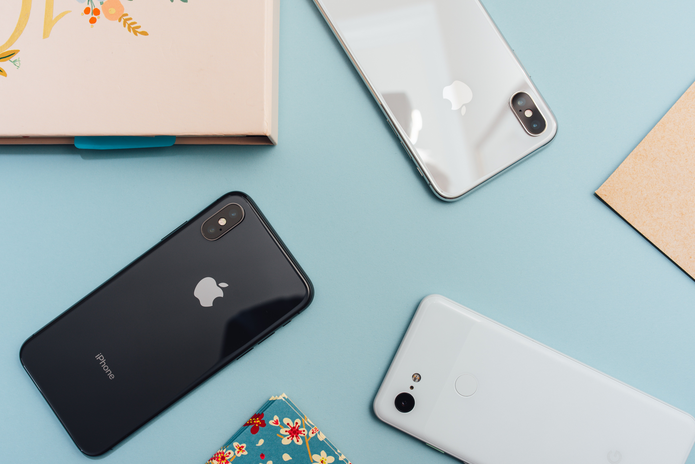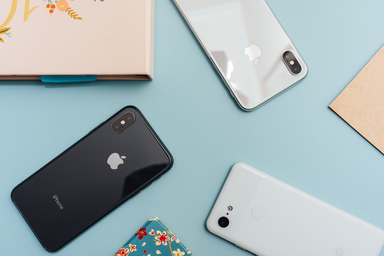On a typical day, think about what you do immediately after class. Do you start your homework right away? Go to the gym? Meet friends for dinner? Or pull out your phone and check to see if anything’s new on Facebook? If social media plays as big of a role in your life as much as it used to in mine, you might find yourself checking for updates before doing anything else. Many days of observing people glued to their phones after class told me I was not the only one.
It’s obvious that social media has a huge impact on college students’ lives. In many ways, it has made our lives better. Sites like Facebook make event planning and connecting with people much easier. I’ve even had classes that gave access to resources like study groups and professors through groups on Facebook.
Despite the benefits, we can probably all agree that social media has brought bad habits into our lives. For many people (including me), feeling the need to check social media constantly has turned into a habit we can’t seem to shake. What is it about social media that is so addicting? The big question is: Why are we addicted to feeling connected?
After careful thought, I came up with several reasons why this might be. Besides getting on Facebook simply because it’s a habit, I found myself using Facebook as a procrastination method, a source to cure my curiosity, and a way to boost my self esteem by making it look like I have more of a life than I do.
This summer, I realized that a large part of my reasons for constantly using social media revolved around caring what other people were doing and their perceptions of me. Because many of my causes went completely against my goal of living for only myself, I decided to try giving up Facebook for a week to see how it would change my life. The first day of my “Facebook Cleanse” as I called it was difficult. I felt like I was depriving myself by cutting myself off from the rest of the world. However, as time went on, I got used to living life without Facebook, felt less anxious, and like I was truly living in the moment. At the end of the week when I came on again, I found that I hadn’t really missed anything earth-shattering. In fact, I felt a little disappointed; I had built Facebook up in my head to be something more exciting than it actually was. Ever since then, I’ve been trying to limit my social media exposure. It’s probably one of the best things I’ve done for myself.
I learned that I wasn’t the only one who experienced these feelings after giving up Facebook. One of my friends (who is much more ambitious than me!) made the decision to give up all social media sites for the entire month of July.
“My daily routine was full of staring at screens, and I had reached a point where I decided to take a break from it all. I wanted to change my priorities, and get more in touch with a lifestyle that focused on the things that were important to me–a healthy mind, body, and spirit,” she said.
Although giving up social media was difficult for her at first, each day became easier.
“Once I started noticing the amazing effects it had on me, I did not once regret my decision. I realized that giving up social media allowed me to have a large proportion of free time that I never had before. I was able to do other fun activities with that time, such as reading, exercising, and most importantly, sleeping. I felt relaxed and rejuvenated because I no longer cared about the latest gossip or trend. I had the time to further reflect about myself, and I was able to find more positivity in my life than ever before–I truly felt happiness.”
She came back on social media after July ended, but returned with a completely different perspective.
“I now see how my peers put this facade up on the Internet, like they are living in a perfect world with a perfect life when that’s really not the case at all. Everyone is fighting their own personal battle in some way, shape, or form, and I think that social media masks this struggle. We hide behind our screens because that’s the generation we were born into. Taking this inner journey made me realize how important it is to not take things to an extreme, and also to always make time for yourself. So, if any of you reading this are thinking about giving up social media, even if it’s for a day, I challenge you to do so. Take some time to yourself, and find your happiness. Cut out the things in your life that are no longer of service to you. Set your intention for the day, and make it a point to accomplish your goals. You never know how holding a short conversation with someone in the elevator, instead of looking at your phone, can make not only their day, but also yours all the better. Social media is just a platform for an even more powerful tool–your voice. Try calling instead of messaging, try snail mailing a photo instead of Instagramming it, try talking to a person instead of about them. What have you got to lose?”
My experience and my friend’s back up recent studies that suggest that the more people use Facebook, the worse they feel. In my Organizational Behavior class, I learned about a study that involved two groups of participants’ moods after interacting with Facebook versus with people in real life. Unsurprisingly, the results showed that the “Facebook group” reported lower life satisfaction. In other words, high Facebook usage undermines well-beings instead of enhancing them.
The study also pointed out that the most common emotion that Facebook usage brings out in people is envy. This didn’t surprise me at all. Like my friend said, sites like Facebook are loaded with highlighted, positive, exciting versions of people’s lives including exotic trips, new relationships, social get-togethers, fun nights out, and the list goes on! People never share negative or mundane parts of life on social media, which might fool viewers into thinking that everyone’s lives are more exciting. I even said myself that I like to use Facebook to post pictures in order to make my life look more eventful. In order to prevent yourself from feeling envious, it’s important to remember that many people do the same thing.
By no means did I write this article to bash social media; I wrote it because I think it’s crucial that more people are aware of its effects. If I can contribute to making more people satisfied with their lives in a small way, I couldn’t be happier. The moral of the story is: it’s okay to continue to use social media in moderation, but don’t be afraid to give yourself a break!
Would you give up social media? Sound off in the comments below!

